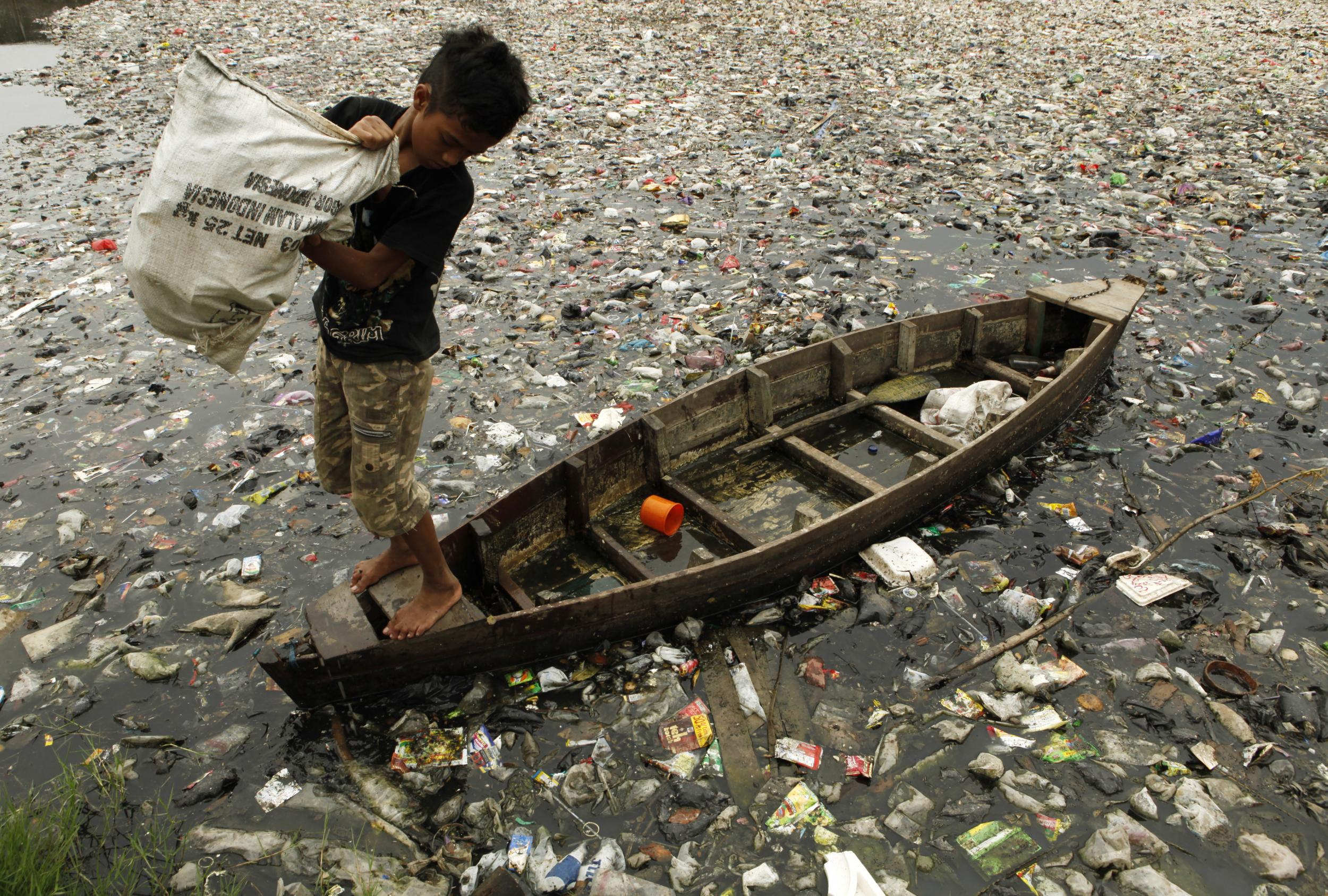UN resolution calling for targets to tackle ocean plastic waste rejected by US, China and India
Exclusive: Final agreement 'stresses importance of long-term elimination' of litter from our seas

A United Nations agreement that would have called for specific, internationally-agreed goals to tackle plastic waste in our oceans has been rejected by the US.
Several countries, including China and India, also refused to include in the resolution a call on nations to adopt any reduction targets, but US officials “were clearly leading the discussion on this”, a source at the UN Environment Assembly in Nairobi told The Independent.
Countries did agree that the world needs to stop plastics from entering the sea, but the final resolution published on Wednesday has no timetable and is not legally binding.
Governments will instead establish an international taskforce to advise on what UN environment chief Erik Solheim has dubbed “an ocean Armageddon”.
China is by far the biggest producer of plastic waste. In 2010 it is estimated to have mismanaged almost nine million tonnes of it. However the US fails to feature in the top 10, according to World Atlas.
A deal was eventually struck that keeps a demand for a reduction target out, in exchange for a pledge that “stresses the importance of long-term elimination” of plastics going into the oceans.

Instead of targets, the resolution “urges all actors to step up actions to by 2025, prevent and significantly reduce marine pollution of all kinds” and “encourages” member states to “prioritise policies” that “avoid marine litter and micro plastics entering the marine environment”.
Politicians say the agreement is important because it will clear the way for much tougher policies and send a signal to governments and business.
Vidar Helgesen, Norway’s environment minister and a leader of the UN debate on plastic pollution, told the BBC it was a “breakthrough for zero emissions of plastic into the ocean”, but admitted it was only the start of the action that will be needed.
Mr Solheim, UN environment head and undersecretary-general, said: “We need to phase out what we don't need, make what we do need with better materials, and recycle all the plastics that we use.
"I'm very optimistic that in 20 years, we will see a much more circular economy."
More than eight million tonnes of plastic goes into the oceans every year. With an estimated 300 million tonnes of it now littering our seas, it is estimated there will be more plastic than fish by 2050.
It is thought our seas now contain about 51 trillion microplastic particles – 500 times more than the number of stars in our galaxy.
This pollution is harming more than 600 species worldwide amid what many are now regarding as the sixth mass extinction of life on Earth.
Join our commenting forum
Join thought-provoking conversations, follow other Independent readers and see their replies
Comments
Bookmark popover
Removed from bookmarks